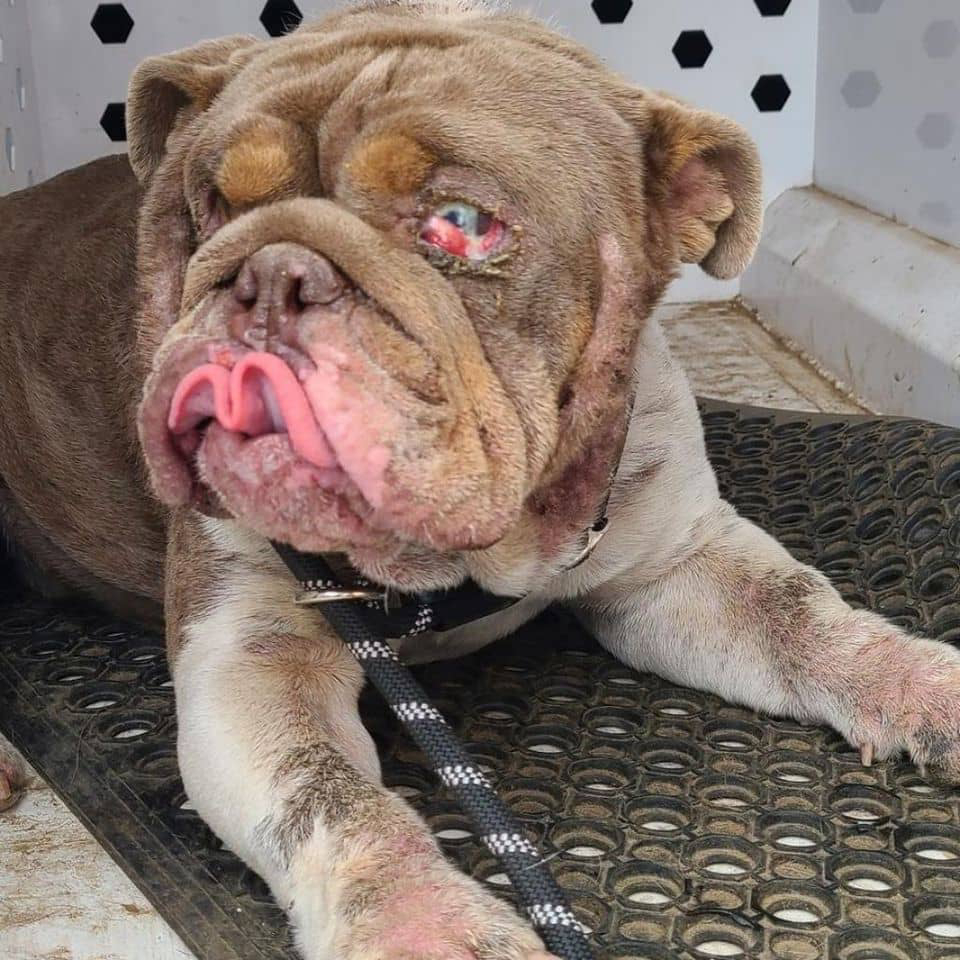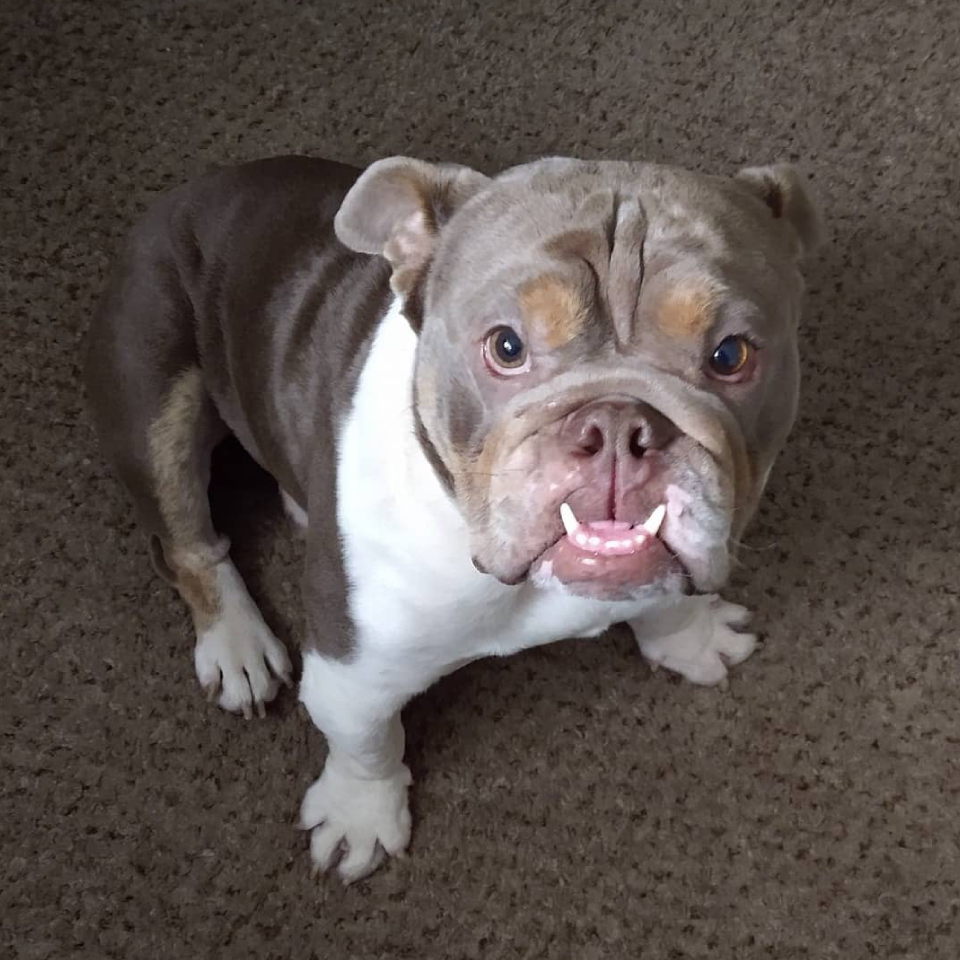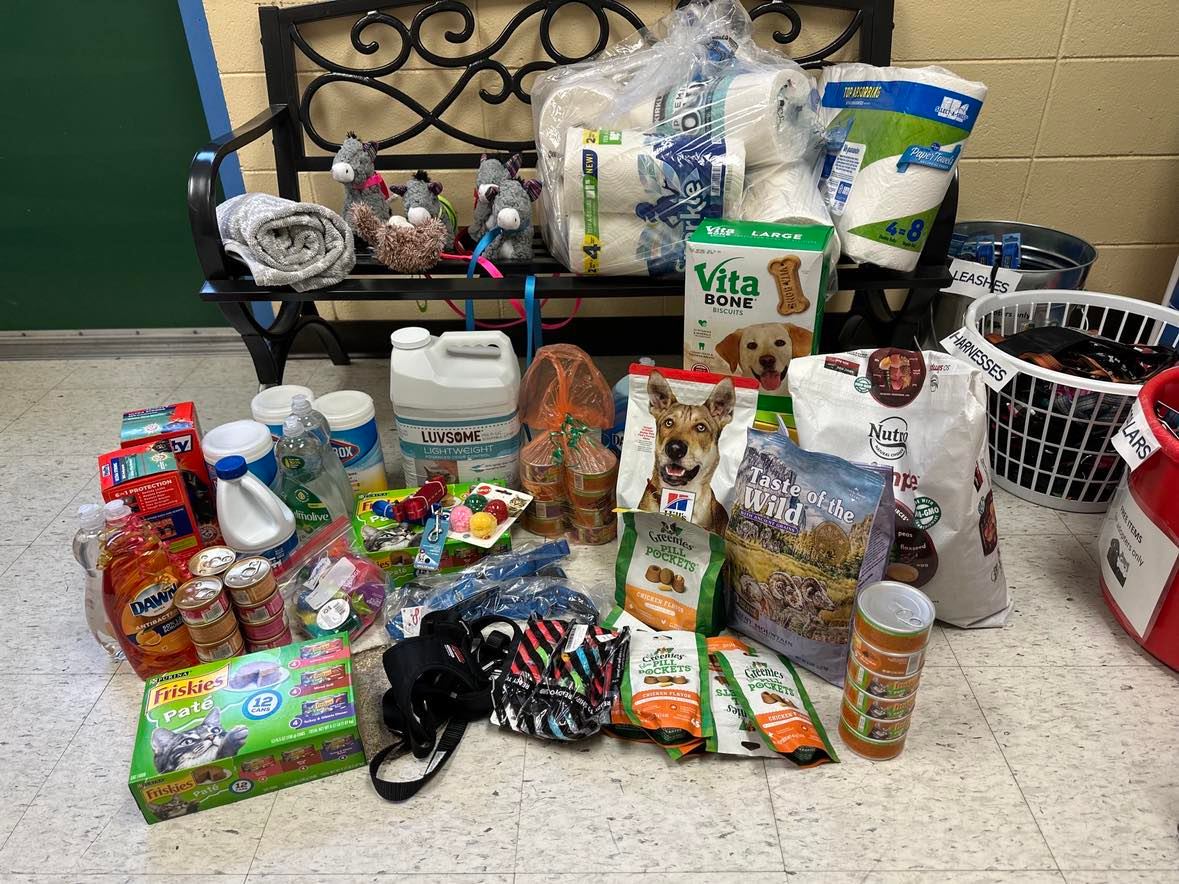
In Josephine County, pet license fees and donations are an important source for funding essential animal services. When you license your pet, know that you are doing your part to help your local shelter workers care for lost, injured and abused animals.
By The Numbers
2,300
Animals sheltered
per year
1,050
Adoptions
per year
450
lost pets reunited
8
Employees
400
Transfers
150
Volunteers
Q&A
Talkin' Shop
Here’s what’s been going on at Josephine County Animal Shelter.
What is something you are really proud of as an organization?
Going from a high-euthanasia shelter to a no-kill shelter in a relatively short time frame.
What makes your organization unique?
Maybe not super unique for municipal shelters, but we are in a very small, ancient building and have a
small staff. Our space is not adequate for modern sheltering, yet we are able to do a lot with very
little.
What is a program that you run that is important for people to know about?
We’d love to highlight our foster program, which allows our reach to extend beyond our physical space here at the shelter. Fosters volunteers to open their hearts and homes to shelter animals temporarily, and we provide all supplies for them.
What is the biggest obstacle(s) your organization faces while caring for animals?
Too many animals and not enough resources – the largest being that our facility was built in the 1950s and is not well-equipped to handle the needs of modern animal sheltering.
Can you share a story of a specific pet you’ve helped? What was the case and what was the result?


Meet Russell! This little fella certainly didn't start out with the greatest lease on life. On the left, you can see what we saw when he first arrived: Russell was underweight, missing hair, had multiple wounds, was carrying a heavy parasite load, and had chronic infections that hadn't been treated, among other medical needs. We got right to work!
This guy got on a nutritious diet, had medicated baths, antibiotics, and lots of hands-on care from his loving foster family to get him back to health. In his foster home, he got along with children, dogs, cats, and even a rabbit. Shelter Friends stepped up to sponsor his eyelid surgery and Russell will live the rest of his life with his full vision. After many inquiries, Russell found is perfect match and is enjoying his time in his new adoptive home.
Why should you license your pet?
Our shelter receives over 1500 stray animals a year. People always think it couldn’t happen to them, but having a license is a great safety net. Pet licensing is not only required by law but tells the community that your pet is owned. Licensed animals are reunited faster with their families, have longer hold times at the shelter, and have lower redemption fees.
How can people help or volunteer?
People can volunteer at our shelter in a ton of different ways! We have people who come to help clean, feed, and care for the animals here at the shelter, people who foster animals in their homes, people who help transport animals to and from vet appointments, people who help with offsite events, and dozens of other ways! From data entry to photography, there are many ways to help, both hands-on and hands-off.
If someone wants to donate pet supplies, what are the items that are needed most?
Our most needed items are cleaning supplies (bleach, paper towels, dish soap, laundry detergent, trash bags), pet food (particularly wet cat food, meat-flavored baby food, grain-free dog food, Hill’s Science Diet cat and dog kibble), treats, leashes/collars, and toys! Used items are welcome.

To what extent do pet license fees contribute to your overall budget?
Pet licensing helps fund Animal Shelter and Animal Control services. Any revenue contributes to helping offer shelter, food, and veterinary care to our shelter guests, as well as funding Animal Control officers who respond to animal concerns in the field, including animals running at large, abuse/neglect, and animal safety.
What does the day of a shelter worker/volunteer normally look like?
We begin every day with daily medications and then get started on cleaning, feeding, and exercising the animals in our care. Staff and volunteers' duties also include all of the daily chores that contribute to husbandry, like dishes, laundry, cleaning crates, and so on. Our volunteers help socialize with animals waiting for adoption. Staff helps ensure the animals are medically and behaviorally ready for adoption.
What should people know before adopting a pet?
All of our adoptable pets are fixed, vaccinated, microchipped, and up to date on parasite prevention for a cost that is WAY lower than what those services would cost at a veterinarian. Adopting a pet is a great way to not only save a life but help the local community: adoption helps pay resources forward to other pets in need, encourages responsible pet ownership, and gives that animal a second chance.
What is your best advice for pet owners?
Love and care for your animals like family! 😊
What is an easy way for community members to help support your organization?
- Adopt!
- Volunteer/foster
- Donate
For more information about Josephine County Animal Shelter, visit www.jocoshelter.com